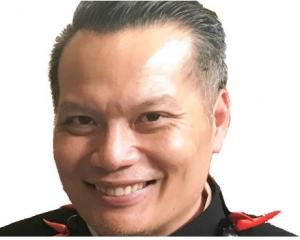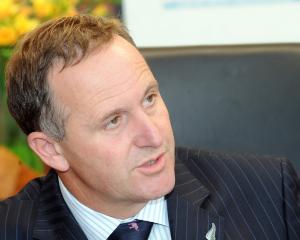President Whatarangi Winiata's bombshell request that MP Hone Harawira resign from the Maori Party will throw the party into unprecedented turmoil.
That was anticipated by him and co-leaders Tariana Turia and Pita Sharples when the request was put to Mr Harawira at a hui in Kaitaia on Thursday.
The fact the Maori Party leaders are willing to accept the internal grief, and possibly a permanent rift with the north, demonstrates how strongly they feel about Mr Harawira going.
It has been a decision reached more in sorrow than anger.
And it is more an act of self-preservation than of punishment.
Mr Harawira sees himself as a likeable rogue, who performs an important role as activist on "the edge" of the party and New Zealand society.
But the leadership see him as an increasing liability, whose divisiveness goes against the kaupapa - underlying ethos - of the party and who threatens to damage the party's ability to pursue its policy agenda in the coming year.
Next year will be a crucial year for the Maori Party, with the ground-breaking whanau ora social policy set to be a feature of the 2010 Budget, the sensitive repeal of the Foreshore and Seabed Act due to be enacted and a constitutional review considering the place of the Treaty of Waitangi to be set up.
It is apparent from comments Mrs Turia has made that the events of the past two weeks - after Mr Harawira went AWOL on a parliamentary trip to Europe and wrote obscenities about Pakeha - were the final clincher, not the sole reason for asking him to go.
Dr Winiata met Mr Harawira last weekend.
It seems likely that at that meeting he raised the prospect of the MP going independent.
Mr Harawira met old friends and media personalities Matt McCarten, Willie Jackson and John Tamihere the same weekend, who counselled him, and two days later Mr Harawira spent the day saying sorry.
Mr Harawira said at his press conference in Auckland on Tuesday there had been recent suggestion he leave the party.
No-one imagined it was the leadership who wanted him gone.
Mr Harawira declared his loyalty to the party on Tuesday, but that was not enough to stop the president presenting his request at the hui. Deeds are what count and in Mr Harawira's contrition spree he opened up further fronts of attack against Labour leader Phil Goff.
On the highly sensitive issue of the foreshore and seabed, he declared that the Maori Party was taking back the foreshore and seabed that Labour had stolen.
Dr Winiata, a gently spoken former accountancy professor at Victoria University, has been the force behind the party as a kaupapa-driven organisation - a set of principles on which the party's policies, responses and behaviour are based.
Kotahitanga is one them, described in party literature as being demonstrated through the achievement of harmony and moving as one, and promoting harmonious relationships among all people.
Another of them is "manaakitanga", which is described as "behaviour that acknowledges the mana of others as having equal or greater importance than one's own, through the expression of aroha, hospitality, generosity and mutual respect".
When asked at a press conference yesterday which kaupapa Mr Harawira had breached, Dr Sharples cited "manaakitanga for starters".
Mr Harawira had been a leader in most things he has done in life until he entered politics.
It has been a difficult adjustment to being just another player. In the north, he is king. In the party, he is not.
When Mrs Turia herself operated in Labour, there was no room for obeisance to a party.
The Maori Party represents a broad church of views, from left to conservative.
It is not Mr Harawira's radicalism per se that is the problem, but his modus operandi, the way he expresses his views in a polarising way.
Dr Winiata's ambiguous comments outside Thursday's hui appeared to leave the door open to Mr Harawira to change his ways and remain with the party "so long as he doesn't destroy the party in the process".
But the press statement prepared ahead of time was more definite and painted a divorce as a fait accompli.
Headed "independent status would acknowledge reality", it said resignation from the party would free Mr Harawira and allow him to act with the independence which he claimed.
It acknowledged that the situation would cause upset and anxiety for Maori Party supporters in Te Tai Tokerau, "who may feel their loyalties to the party and their MP are now conflicted".
A by-election cannot be discounted whereby Mr Harawira resigns from Parliament and seeks a new mandate.
Another option is that if an amicable agreement is reached whereby he becomes an independent, the Maori Party might not put up a candidate against him next time.
The very act of asking him to consider leaving will cause resentment towards the party and perhaps create a constituency among his supporters over the next couple of weeks that encourages him to leave the party.
The alternative is that kaumatua of the north whom he will be consulting in the next fortnight come up with a solution acceptable to all.
Mr Harawira's electoral support in the north is not spectacular.
In fact, he holds the second-lowest majority of the five seats, next to Te Tai Tonga's Rahui Katene. He beat Labour's Dover Samuels in 2005 by 3613 votes. Last year, he increased his majority to 6308.
But that is less than the majorities held by Mrs Turia, Dr Sharples and Te Ururoa Flavell.
It was clear from the press conference Mrs Turia and Dr Sharples held at Parliament yesterday that their tolerance for Mr Harawira is an at end.
The possibility of him remaining a colleague seems remote at this stage.
There can be no mistaking the message: Mr Harawira is not a team player and is not suited to the disciplines of a political party. The hope is that he recognises that himself.
But Harawiras don't do humiliation, and the default position would have to be one in which he fought expulsion - which in itself could be damaging to the party.
It is a battle the leadership has calculated is worth risking.
Audrey Young is The New Zealand Herald's political editor.








